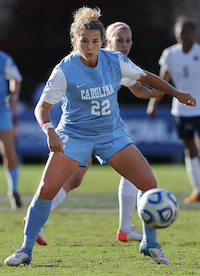Tuesday, December 24, 2013
Tuesday, December 10, 2013
Sunday, December 8, 2013
Saturday, December 7, 2013
Wednesday, December 4, 2013
Thursday, November 28, 2013
Matt Heitmann Signs With Augustana University
SIOUX FALLS, S.D. – Augustana men's basketball head coach Tom Billeter announced today the signing of three student-athletes to letters of intent for the 2014-15 season.
Marcus Asmus from Westminster, Colo., Matt Heitmann of Williamsburg, Iowa and Ben Weisbeck from Bismarck, N.D., have all signed letters of intent to continue their academic and athletic careers at Augustana. Wednesday was the first day of the early signing period for NCAA basketball programs.
Asmus, a 6-foot-7 forward, is a senior at Standley Lake High School and is a one-year letterwinner for the Gators. Asmus was a team captain as a junior and earned Jefferson County Conference First Team honors. He was also named his team's Most Valuable Player after averaging 19.1 points and 12.0 rebounds per game last season. Asmus shot 48 percent (145 of 301) from the field last season and was a 78 percent (130 of 167) shooter from the free throw line.
"Marcus is a young man who grew up playing hockey and only started taking basketball seriously until the last four or five years," Billeter said. "He has a tremendous upside and is not afraid to mix it up. Marcus has both outside and inside abilities and has a lot of potential to be a very good player."
Heitmann, a 6-foot-9, 225-pound forward, is in his senior season at Williamsburg High School where he is a two-year letterwinner and starter. Heitmann averaged 16.0 points, 9.0 rebounds and 3.5 blocks per game as a junior last season. He was a 73 percent shooter from the field and hit 65 percent of his shots from the free throw line in 2012-13. Heitmann earned All-State honors from the Iowa Newspaper Association and IowaPreps.com last season while being named first team all-conference.
Marcus Asmus from Westminster, Colo., Matt Heitmann of Williamsburg, Iowa and Ben Weisbeck from Bismarck, N.D., have all signed letters of intent to continue their academic and athletic careers at Augustana. Wednesday was the first day of the early signing period for NCAA basketball programs.
Asmus, a 6-foot-7 forward, is a senior at Standley Lake High School and is a one-year letterwinner for the Gators. Asmus was a team captain as a junior and earned Jefferson County Conference First Team honors. He was also named his team's Most Valuable Player after averaging 19.1 points and 12.0 rebounds per game last season. Asmus shot 48 percent (145 of 301) from the field last season and was a 78 percent (130 of 167) shooter from the free throw line.
"Marcus is a young man who grew up playing hockey and only started taking basketball seriously until the last four or five years," Billeter said. "He has a tremendous upside and is not afraid to mix it up. Marcus has both outside and inside abilities and has a lot of potential to be a very good player."
Heitmann, a 6-foot-9, 225-pound forward, is in his senior season at Williamsburg High School where he is a two-year letterwinner and starter. Heitmann averaged 16.0 points, 9.0 rebounds and 3.5 blocks per game as a junior last season. He was a 73 percent shooter from the field and hit 65 percent of his shots from the free throw line in 2012-13. Heitmann earned All-State honors from the Iowa Newspaper Association and IowaPreps.com last season while being named first team all-conference.
Tuesday, October 1, 2013
Jeff Janssen on Commitment
The 6 Key Components of Commitment

How do you define commitment?
What exactly does it mean to truly be committed to someone or something?
In today's age of entitlement and instant gratification, the critical concept of commitment is getting watered down in the minds of many athletes.
80% of coaches believe that today's athletes don't fully understand nor appreciate the importance of commitment. To combat this insidious assault on the importance and value of commitment, I have athletes define the concept of commitment and have them discuss the 6 Key Components of Making and Keeping a Serious Commitment listed below. I strongly encourage you to do the same.
Here's how we define commitment:
Commitment is a serious, long-term promise you make and keep with yourself and others to fully dedicate yourself to your task, training and/or team, even when, and especially when times are tough. Further, commitment means not only promising to do something, but much more importantly, actually investing the necessary effort and actions to make it happen.
The 6 Key Components of Commitment
Based on this definition, you’ll notice that there are six key components of making and keeping a Serious Commitment.
A Serious Commitment is a...
1. Solemn Promise
Instead of just being hollow words said casually in passing, a Serious Commitment is a solemn pledge you make and keep with yourself and others. You must understand the complete consequences of your commitment and fully mean it when you say it. When you make a commitment, others will take you seriously and rely on you to be true to your word.
“Our tradition calls for a commitment to accountability. This is not an assumption – this is a promise that I will be there for you; and I can count on you being there for me.”
Bob Ladouceur, De La Salle High School Football Coach

Tuesday, August 6, 2013
Jon Gordon: Sharp Knives… And Focusing On What Matters Most
Posted by Jon Gordon
I was once speaking to the employees of a hotel/resort and the head chef shared a comment that really stuck with me.
“Yep, I’m a typical chef,” he said. “At work my knives are all nice and sharp. But when I cook at home, all my knives are dull.”
Sharp knives at work… Dull knives at home.
How many of us need to spend more time sharpening our knives at home?
Monday, August 5, 2013
Rajon Rondo on Team Decisions
"It's What's Best for the Team"
"My job is to play, whether Doc throws an 8th grader out there...I'll try to make his job easier and bring the best out in him." That’s Rajon Rondo talking about how he isn't concerned with who starts and who doesn't.
Part of leadership is getting the team to buy into the importance of team over self, and that's what Rondo is talking about. There are some great lessons in this quote if you spend some time thinking about it: leadership lessons, teammate lessons, and trust lessons. Let's take a look at each of these:
"My job is to play, whether Doc throws an 8th grader out there...I'll try to make his job easier and bring the best out in him." That’s Rajon Rondo talking about how he isn't concerned with who starts and who doesn't.
Part of leadership is getting the team to buy into the importance of team over self, and that's what Rondo is talking about. There are some great lessons in this quote if you spend some time thinking about it: leadership lessons, teammate lessons, and trust lessons. Let's take a look at each of these:
LEADERSHIP LESSONS: Rondo
is basically saying it's not as important who starts and who doesn't; the key
is that the best lineup at any given time in the game be what's best for the
team. He's putting team before individual and he fully understands that
the best decisions for winning are decisions that put the team above the
individual.
TEAMMATE LESSONS: This
is a tough one. In one sense, he's saying, "we want the best player
out on the floor for that time of the game." This gives that
teammate tremendous confidence in that Rondo is saying, “I believe in
you". On the other hand, the player who's not out there may be
thinking, "he believes in him more than he believes in me."
This is where leadership becomes tougher than people think -- that
balance between keeping guys happy, motivated, and engaged when their number
isn't called.
TRUST LESSONS: What
Rondo is really saying here is, "I trust the decision my coach is making.
I know my coach makes his decisions based on what's best for the team.
I trust this and now it's my job to help that player excel."
The ultimate lesson here is even bigger. What you say can
be very important to the success or failure of a team, an organization, or a
business. Whenever a statement is made with an individual's name in it, you can
bet that person will pay attention to it and he will make his own
interpretation of the message. So what you say does become important.
I just warn players to think first, talk second. And the same applies to
us as coaches.
Sunday, August 4, 2013
Friday, August 2, 2013
Holding Others Accountable
From Championship Coaches Network
Link: Hold Everyone Accountable
Greg A. Shelley, Ph.D., Colgate and Lafayette Leadership Academies
Holding others accountable is difficult, often uncomfortable, and yet absolutely necessary. If your athletes are going to grow and develop, and your team is going to mature and progress, you will need strong coach-player and player-player accountability.
Link: Hold Everyone Accountable
Greg A. Shelley, Ph.D., Colgate and Lafayette Leadership Academies
Excerpt from Dr. Shelley's new book: 50 Rules to Build Committed, Confident, and Motivated Athletes and Teams
Holding others accountable is difficult, often uncomfortable, and yet absolutely necessary. If your athletes are going to grow and develop, and your team is going to mature and progress, you will need strong coach-player and player-player accountability.
Accountability is about empowering, encouraging, and "pushing" others to accomplish a task. It is a rare person that "enjoys" being held accountable. Who wants to be told they need to gain strength, work harder, commit more, improve their attitude, or communicate more effectively?
Similarly, it is also difficult for the person holding others accountable . . . as the process of holding another person accountable often ends with that person becoming angry, offended, or feeling "singled out". In contrast, holding others accountable should conclude with everyone involved realizing their goals and expectations are within reach. All parties should have a clear understanding of where they stand in relation to any previously agreed upon individual or team goals.
Holding others accountable is about helping others reach their goals and follow through with what they initially set out to do. Below are several coach considerations for establishing individual and team accountability.
Wednesday, July 31, 2013
Relationships: A Key to Your Success
Relationship has become a huge buzz word not only in athletics, but in the corporate world, higher education, and elsewhere. Seems like everything we read has a reference to the importance of relationships. What's interesting is that it's really true.
Relationships are the foundation for everything that's important in coaching. Getting players to buy into your system is rooted in how strongly your players believe in you. Their belief will be a byproduct of their relationship with you. I really don’t know of too many players who dislike and distrust their coaches and still go out and play hard for them.
Subscribe to:
Posts (Atom)














